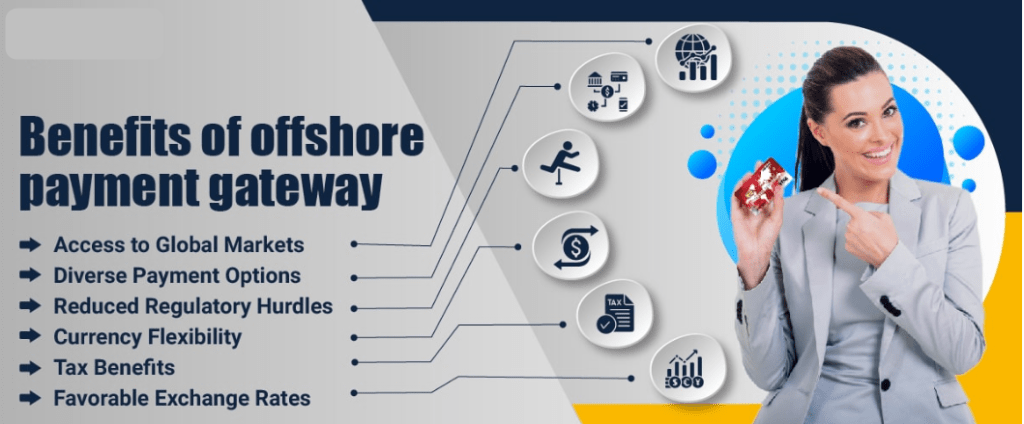AUTHOR : SELENA GIL
DATE : 7/12/2023
Introduction
The world of e-commerce and digital payments[1] is evolving rapidly, with technology continuously shaping how businesses manage transactions. One of the most critical elements in this landscape is the payment gateway — the technology that allows merchants to process payments securely. However, for businesses operating in high-risk industries, finding a reliable payment gateway can be a challenge. Offshore high-risk payment gateways[2] are becoming increasingly important for these businesses, offering secure, reliable, and cost-effective solutions. In this article, we’ll explore the latest trends in payment gateways, particularly focusing on the role.
The Rise of Offshore High-Risk Payment Gateways

What Are Offshore High-Risk Payment Gateways?
Offshore high-risk payment gateways[3] are specialized payment processing systems designed to cater to industries that are typically deemed high risk by traditional financial institutions. These industries can include adult entertainment, online gambling, e-cigarettes, travel, CBD products, and others. Because of the nature of these businesses, they often face challenges in finding reliable and secure payment processing solutions from domestic providers.
Why Offshore Payment Gateways Are Essential for High-Risk Businesses
Traditional payment providers[4], such as Visa and Mastercard, are often hesitant to work with high-risk industries due to chargebacks, fraud, and legal challenges. As a result, businesses operating in these sectors frequently encounter difficulties when trying to secure payment processing services. This solve this problem by offering tailored solutions that cater specifically to these types of businesses.
Trends Shaping the Future of Offshore High-Risk Payment Gateways

1. Increased Demand for Cryptocurrency Integration
One of the most significant trends in the payment gateway industry[5] is the growing integration of cryptocurrency payment options. Cryptocurrencies like Bitcoin, Ethereum, and others are increasingly being used as payment methods, especially in high-risk industries. The decentralized nature of cryptocurrencies allows businesses to bypass traditional banking systems, making them ideal for offshore high-risk payment gateways.
2. Emphasis on Fraud Prevention and Security
With the rise in online fraud and cyberattacks, security remains a top priority for businesses. Offshore high-risk payment gateways are adopting advanced fraud detection and prevention technologies to protect merchants and customers alike. Machine learning and AI-powered fraud prevention tools are becoming commonplace, enabling payment gateways to detect suspicious activities in real time and prevent fraud before it happens.
3. Cross-Border Payment Solutions
Offshore payment gateways are increasingly offering cross-border payment solutions to cater to the growing number of international transactions. As businesses expand their reach globally, the need for seamless, multi-currency payment solutions becomes more pressing. Well-equipped to handle cross-border transactions, offering competitive exchange rates, faster processing times, and lower fees compared to traditional payment processors.
4. Mobile Payment Integration
With the increasing use of smartphones for online shopping and payments, integrating mobile payment solutions into this has become a key trend. Mobile payment systems like Apple Pay, Google Pay, and other digital wallets are gaining popularity as they offer a quick, secure, and convenient way to pay for goods and services.
5. Customizable Payment Solutions
One of the standout features is the ability to offer customizable payment solutions. Unlike traditional payment processors, which typically offer one-size-fits-all solutions, offshore payment gateways provide businesses with the flexibility to tailor their payment systems according to their specific needs. This includes the ability to integrate multiple payment methods, such as credit cards, bank transfers, and alternative payment methods, into a single platform.
6. Subscription-Based Models
Subscription-based businesses, such as SaaS platforms, membership sites, and recurring billing services, are on the rise, and offshore high-risk payment gateways are increasingly catering to this market. These businesses often face difficulties with payment processing due to high chargeback rates and fraud risks. Offshore high-risk payment gateways are offering tailored subscription billing models that provide merchants with recurring payment options, secure billing cycles, and chargeback management tools.
7. Advanced Reporting and Analytics
Data-driven insights are critical for businesses to make informed decisions, especially in high-risk sectors where risk management is key. Offshore high-risk payment gateways are now offering advanced reporting and analytics tools that provide businesses with real-time data on transaction volumes, fraud patterns, chargebacks, and customer behavior.
Conclusion
The payment gateway industry is undergoing significant transformations, and offshore high-risk payment gateways are at the forefront of these changes. With a growing demand for alternative payment solutions, increased emphasis on security, and the rise of cryptocurrencies, businesses in high-risk industries are finding new ways to secure payment processing and expand globally. As technology continues to evolve, offshore high-risk payment gateways will remain a crucial tool for businesses that need secure, reliable, and cost-effective payment solutions.
FAQs
1. What makes a payment gateway “high-risk”?
A high-risk payment gateway is typically used by businesses in industries that are more prone to chargebacks, fraud, or legal challenges.
2. Why are offshore payment gateways preferred by high-risk businesses?
Offshore high-risk payment gateways are preferred because they offer more flexibility and fewer restrictions compared to domestic payment providers.
3. Are cryptocurrency payments safe for high-risk businesses?
Yes, cryptocurrency payments can be very secure due to the decentralized nature of digital currencies.
4. How do offshore high-risk payment gateways ensure security?
Offshore high-risk payment gateways use advanced fraud detection tools, AI-driven security measures, and secure authentication methods like two-factor authentication and biometric verification to ensure the safety of transactions.
5. Can offshore payment gateways handle international transactions?
Yes, offshore high-risk payment gateways are well-equipped to handle cross-border transactions. They provide businesses with multi-currency processing, competitive exchange rates, and compliance with international regulations, making it easier to operate globally.





